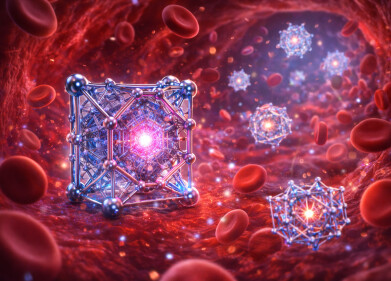News
Funding Supports Collaboration on RNA Research
Jun 20 2020
Financed as a European Union Twinning project, Johannes Gutenberg University Mainz (JGU) and Masaryk University, the second-largest university in the Czech Republic, have announced plans for close cooperation with regard to research into ribonucleic acids (RNAs).
The three-year project will kick off in January 2021 and receive EUR 1 million in total provided by the EU. The Institute of Molecular Biology (IMB), located on the JGU campus, the European Molecular Biology Laboratory (EMBL) in Heidelberg, and the University of Edinburgh will also be involved in the program.
The Twinning project is intended to support emergent research institutions within the EU13 states that have joined the European Union since 2004. Eligible institutions are partnered with at least two leading international institutions within the respective field of research. In this case, the Central European Institute of Technology (CEITEC) at Masaryk University will receive support in establishing a leading-edge cluster for RNA research.
"We are very proud to have been selected as a partner," said Professor Mark Helm of JGU's Institute of Pharmaceutical and Biomedical Sciences, which is participating in the project. "This reflects JGU's sterling reputation in the field of RNA research."
One core element of the project calls for young researchers from Masaryk University to visit JGU to complete part of their training during or after their doctorate. "The coordinators of the project at the various institutions all know one another because they have been working for decades in the same field," explained Helm. "Collaboration of this kind fosters a great many ongoing academic and even personal relationships that will prove very fruitful for us all in the long run." Helm anticipates that the project will not just burnish ties to Masaryk University, but to other participating institutions as well.
RNA uses the genetic information stored in DNA (deoxyribonucleic acid) for the synthesis of proteins and thus plays a central role in the functionality of human cells. In recent years, numerous sub-types of this biomolecule have been discovered. Knowledge about the so-called small RNA is of growing importance for the treatment of a variety of diseases.
Digital Edition
Lab Asia Dec 2025
December 2025
Chromatography Articles- Cutting-edge sample preparation tools help laboratories to stay ahead of the curveMass Spectrometry & Spectroscopy Articles- Unlocking the complexity of metabolomics: Pushi...
View all digital editions
Events
Jan 21 2026 Tokyo, Japan
Jan 28 2026 Tokyo, Japan
Jan 29 2026 New Delhi, India
Feb 07 2026 Boston, MA, USA
Asia Pharma Expo/Asia Lab Expo
Feb 12 2026 Dhaka, Bangladesh



















